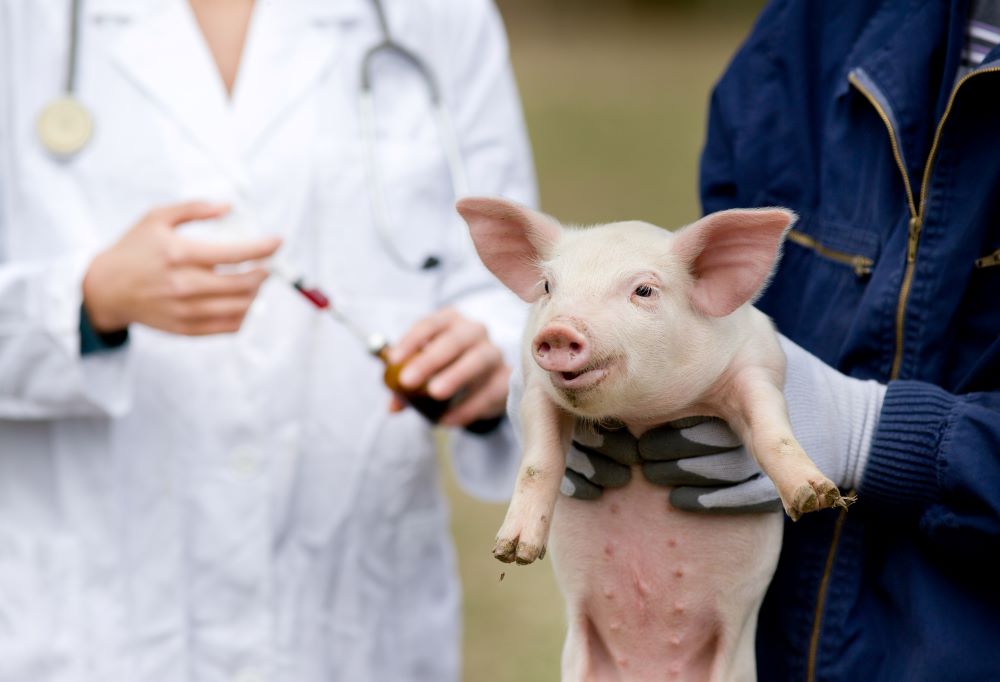
New EU rules on the use of antibiotics in farming could effectively lead to a ban on some British food exports to the continent.
From 28 January, the restrictions on the administration of antibiotics to groups of healthy animals came into force across the EU.
European farmers will only be able to use antibiotics as a preventive measure in exceptional cases and only with individual animals, reports the Guardian.
Food ban
According to the Express, the regulation is set to see UK meat, fish, dairy and eggs exports banned by the EU as the use of antibiotics is still widely adopted in UK farming.
Antibiotic use is the main driver of antimicrobial resistance (AMR) – one of the biggest threats to human and animal health.
‘Super bugs’
Overuse of the antibiotics has been linked to the emergence of so called ‘super bugs’, Food Navigator reports.
Animal agriculture accounts for more than 70% of antibiotics used globally.
Falling use
Cóilín Nunan, from the Alliance to Save Our Antibiotics said antibiotic use in British pigs was still two-and-a-half times higher per animal than in Denmark and the Netherlands.
“The government can’t claim to be a world leader when the UK is one of the only countries in western Europe where it will be legal to use antibiotics routinely for preventive mass medication of farm animals,” he said.
Responsible
Richard Griffiths, the chief executive of the British Poultry Council, said the current voluntary approach had put the UK ahead of most EU countries, and that compulsory controls are unnecessary.
“We are recognised as a leading proponent of responsible use of antibiotics, so no I do not think there is a danger of us falling behind anyone,” he said.
Northern Ireland
A European Commission report has also labelled sanitary and phytosanitary checks on agri-foods at Northern Ireland’s sea ports as “not fit for purpose”, reports the BBC.
Its draft report, based on examinations in June last year, said the processes did not comply with EU rules with inadequate resources to blame.
Checks on British goods take place at Northern Ireland ports to make sure they comply with EU laws as the region has effectively remained in the EU’s single market for goods under the terms of the Northern Ireland Protocol.
Recommendations from the report included the introduction of proper facilities, more qualified staff, better information sharing, and better systems for checking pets and personal agri-food products.
Protocol talks
Talks about the Northern Ireland Protocol are ongoing with foreign secretary Liz Truss meeting business leaders and politicians in Belfast on Thursday.
Afterwards, she spoke to Irish foreign minister Simon Coveney who tweeted there were “landing zones” for a deal.
The Irish Times reports Truss’s desire to “make significant progress by February”.
“That’s important but it’s important that we secure the support of all of the communities in Northern Ireland, including the unionist community,” she added.


